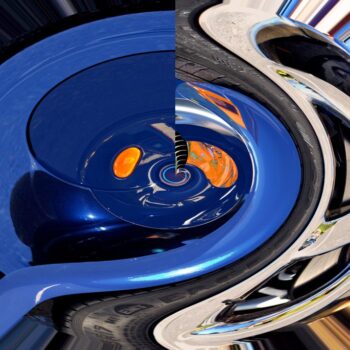
Natalie and John: A Narrative Perspective on the Future Hopes and Fears Facing Organizational Coaching
Technologies are also making the world less hierarchical and more accessible–in other words, Friedman’s (2005) ” flat world.” This in turn means that coaching will become even mor e international in scope with coaches not only living and working in Wyoming, but also living in Singapore, Cape Town and Bogota. Clients will be working not only in Pittsburgh and New York, but also in London, Helsinki, Istanbul and Jakarta. Coaches may have to become bilingual, trilingual or even quad lingual; at the very least they must become increasingly sensitive to the nuances of culture and the differing ways in which working relationships are established and businesses are conducted in other countries (Rosinski, 2006). With the nonhierarchical nature of the new international networks of communication, there is an even greater need for clients to learn how to influence rather than control. The density of the messages that are flowing through these nonhierarchical channels further suggest that clients must learn how to understand, even if they can’t precisely predict, what is about to occur in their personal or work life. Coaches can assist clients engage in their difficult cognitive and affective transitions.
To push even further into the future and into the art of speculation, there is likely to be a new cluster of computer-based tools that significantly increase our capacity to view and analyze complex sets of data (both quantitative and qualitative). We have seen the first versions of these powerful tools in the creation of such software programs as “Dynamo” (and a more recent version: ” I-Think”) and in a set of accompanying conceptual tools beginning with Jay Forrester’s Industrial Dynamics (I961), Urban Dynamics (1969) and World Dynamics (1971), continuing with the noteworthy Club of Rome study called ” Limits to Growth,” (Meadows and Others, 1972) and made even more accessible through the writings of Peter Senge (1990).
WELCOME TO THE EPISTEMOLOGICAL REVOLUTION(S)
While coaches like Natalie and clients like John are in the midst of technological revolutions and economic challenges, they are also confronting (or potentially could confront) several major epistemological challenges – revolutions in the fundamental theories, conceptual models and frameworks which undergird the base of knowledge in many Western and Eastern societies. While these challenges are multiple and wide-ranging, several are particularly salient regarding the coaching enterprise.
Neuro-Biological revolution
The first of these is the neurobiological revolution. We are in the midst of learning much more about ways in which our brains operate. The old debate between nature and nurture is now over Who we are and the competencies we exhibit every day in our life are determined by a complex interaction between genetics, life experiences, the environment in which we live, and the environment that existed in our mother’s womb during the critical nine months of gestation (Rose, 2005). This means for coaches and leaders that we can learn and change, but that we enter these developmental initiatives with some very strong predispositions, some unique strengths and weaknesses, and a personality and pattern of behavior which is not readily changed.
For instance, we now know that there are two functioning memory systems. One of these (procedural brain) operates when we are performing habitual behavior—such as engaging the gas pedal and brake while driving a car. The other (expository brain) addresses new conditions through reasoning, problem-solving, and learning such as determining whether the person in the car next to us is going to turn into our lane. When we invite our clients to adopt a new pattern of behavior, we are asking them to perform a very difficult task. Our client must move their cortical work from the procedural part of their brain which works easily and without much thought to the expository part of the brain which requires attention and exertion. Our personality style, leadership style and interpersonal styles are deeply embedded in the procedural brain. This brain does not appreciate the interference of a coach who wants us to shift everything over to the expository brain, make some major changes, and engage these changes repeatedly for a rather lengthy period of time (until a new behavioral pattern is established which moves over to the procedural brain).
- Posted by William Bergquist
- On January 1, 2022
- 0 Comment


Leave Reply